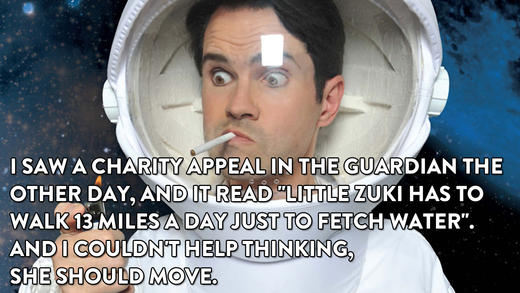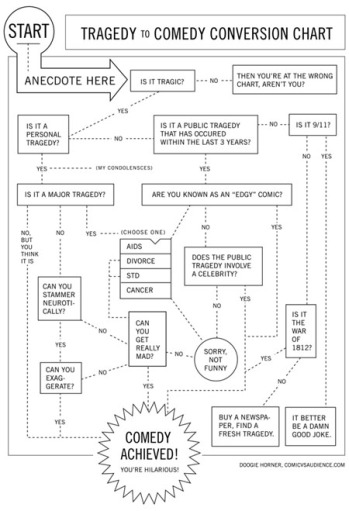A student used this as an example of offensive humor in their humor essay. They said that this might be explained by the Relief Theory of humor. They made a good case for it. I went to look up the video of the joke from Family Guy, as I had not seen it. This is the clip:
https://www.youtube.com/watch?v=X7_0NoRHOEM

http://www.funnyjunk.com/Try+everything+atleast+once/funny-pictures/4842531#90eada_4842087
Now this joke clearly can be seen as offensive, and as someone who (uh oh) is very supportive of a Palestinian state as well as someone who wishes more attention was paid to the non-violent means on both sides of the Israel-Palestine struggle, I still laughed. Yes. And I might be inclined to say that my laughter was immoral. But it was involuntary.
But as De Sousa argues, I clearly have to hold the belief in some way to find it funny, so the belief that terrorist-style (or terrorist indeed) violence and Palestinians blowing themselves up is a good thing might be present in my mind….hmmm, no, I honestly don’t think I find these to be a good thing.
But what also caught my attention were the comments. Normally, one should avoid Youtube comments entirely but they are a great place to mine for the WORST of offensive jokes. And since the Palestinian Alarm Clock joke was offensive, I figured the comments would also bear painful, wicked, immoral (and maybe funny) wit.
But also grief, sadness, appeals to decency, and a sense of people trivializing the tragic. Which it also had.
First: the TOP COMMENT reads as such– the offensive and….damn it…I laughed, perhaps an immoral laugh. Some less interesting comments such as “FTW” have been deleted. Spelling is kept in its original “flavor”.
Top comments
This is not funny. My father died in 9/11. His last words were Allahu Akbar.
Oh well……fuck the others that died huh??🤔🤔
my father also died with the same last words only he knew your father
my grandfather died in the jewish holocaust of 1942. He fell off the guard tower
Tracie Velge3 weeks ago (edited)
hey buddy i get it my family friend richie dumuso was a person who worked in the met life office who lost his right hand witch got an infection due to the exposure to the asbestis and chemicals from the towers in 9/11 he helped raise my family we nearly lost him due to the infection but he pulled through. lighten up a little i mean what did you expect…cough attention seeking dick
stop making nazi jokes they are making me fuherious
that’s a very sad story and I am sorry to hear, but this is hilarious
Sadly this joke blows up in our face.
I’m Israeli and my people face the threat of this violence every day, and I found this to be FUCKING HILARIOUS!!!!
And those who were perhaps rightly offended
+Guy Smiley yeah and have u heard about Palestine in the news no but u have about Israel and those say that us Palestine are bombing u. Oh yeah and have u heard the 4 innocent children playing in a sand pit and suddenly being bombed huh? Yeah I didn’t think so or the old man in a wheel chair being threatened to death? Yeah that’s what I thought. If u want I can continue. There’s more. And don’t tell me I am making these up cause every human person who supports Palestine will know what I’m talking about and not only them people around the world!
abderahman elaziz thanks Im Palestinian and i found this really sad, i mean we don’t have any guns or bombs all we have is stones!
this is so racist . fuck this vedio
Back to GRADING!















